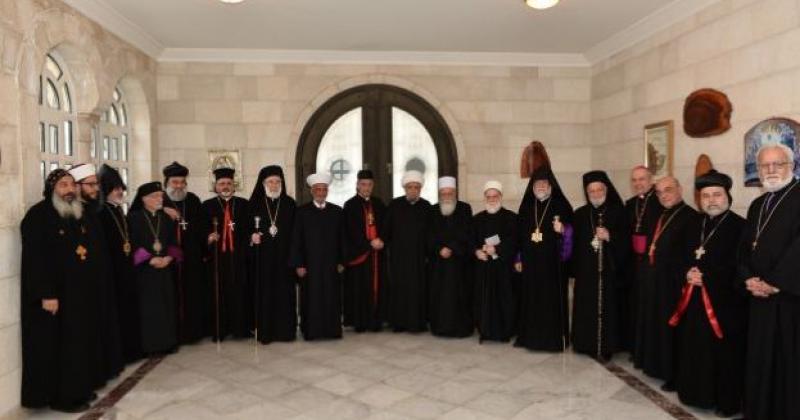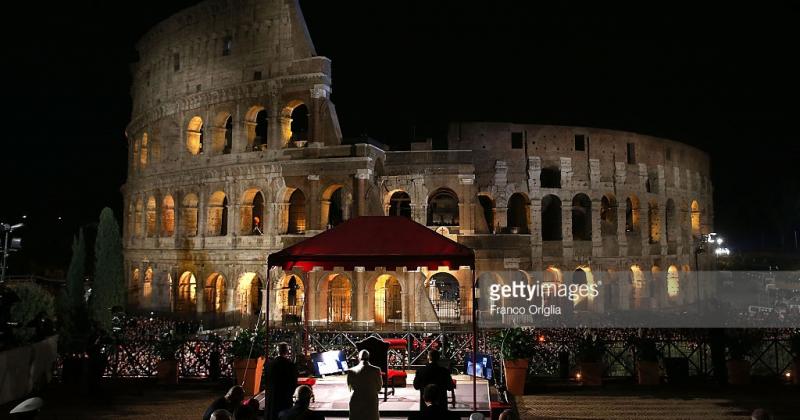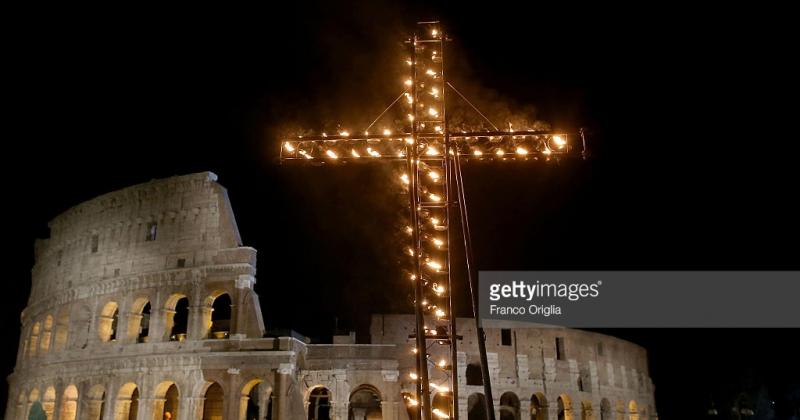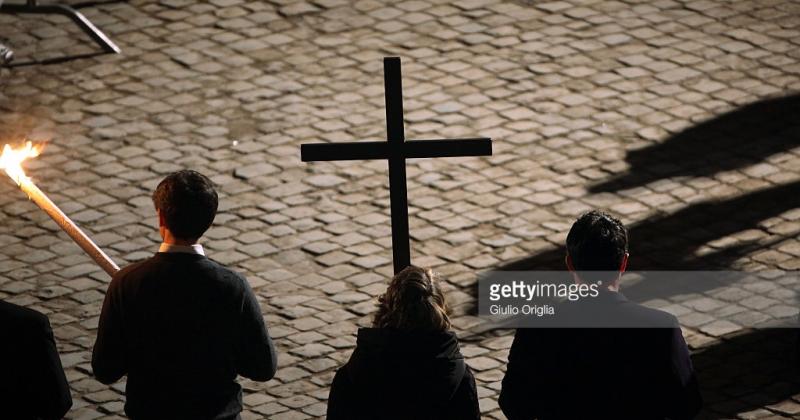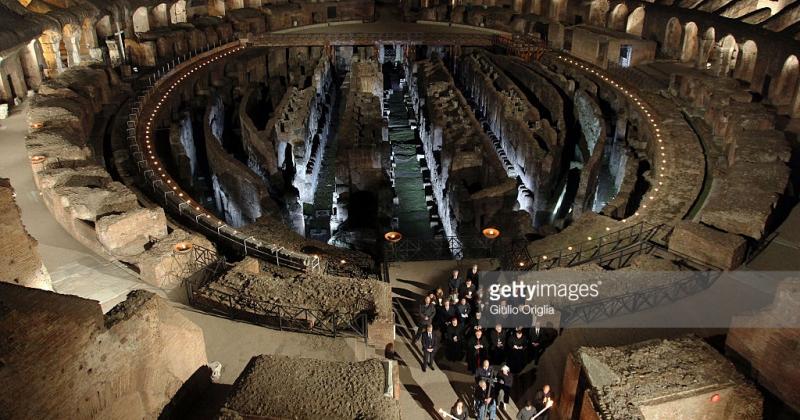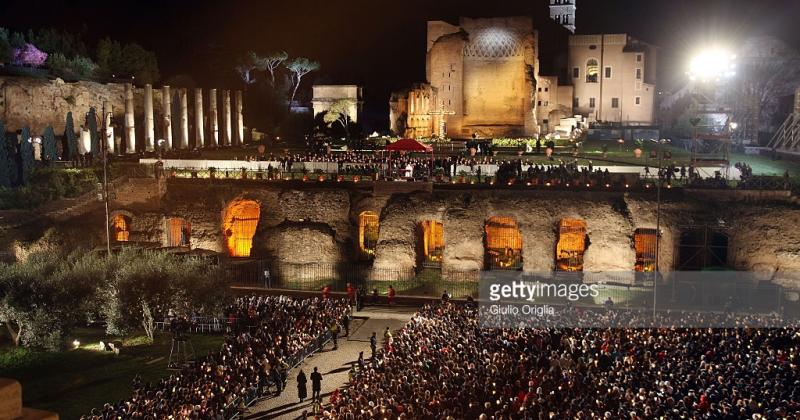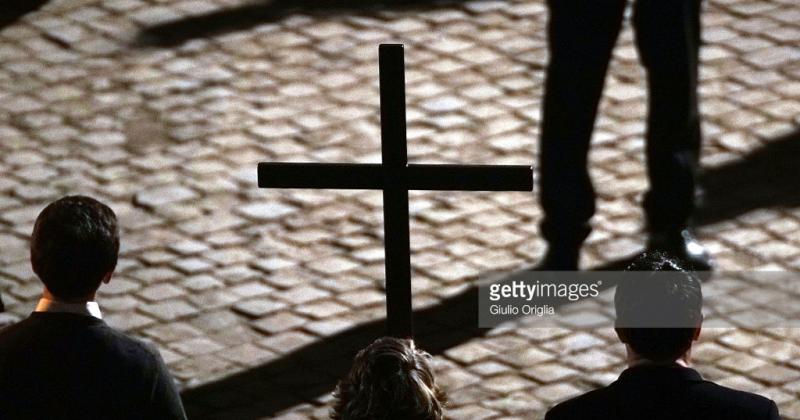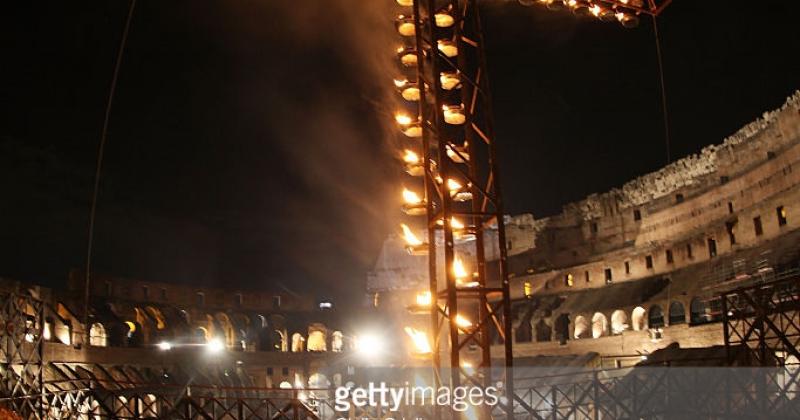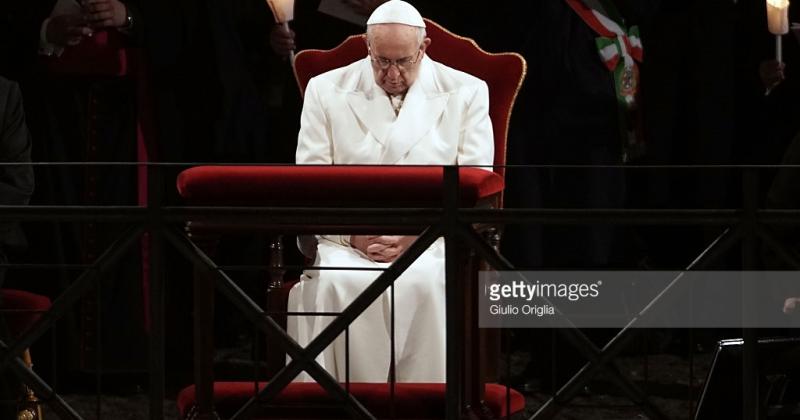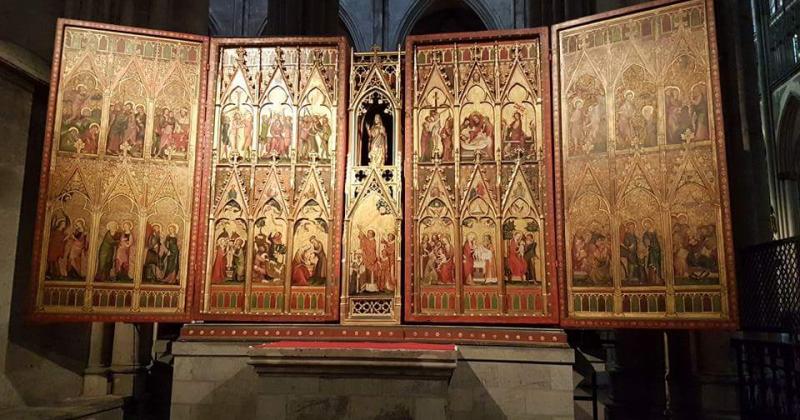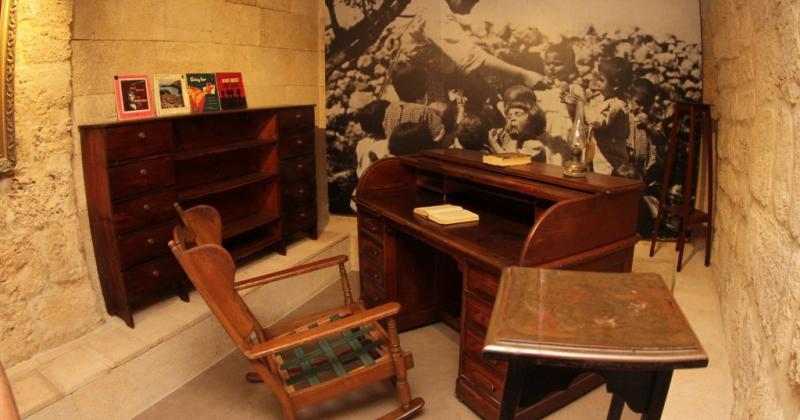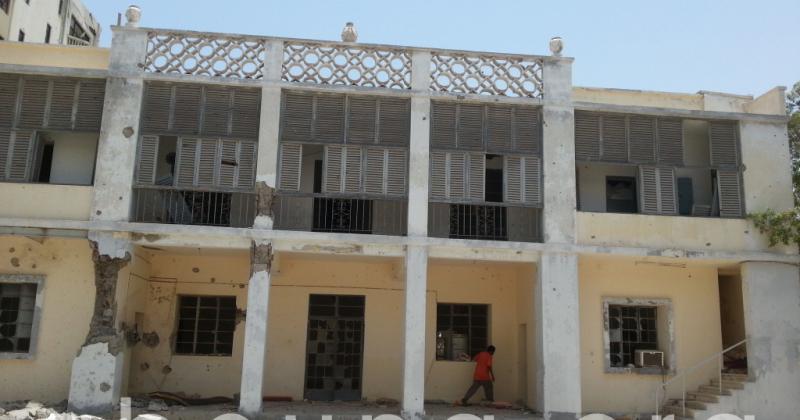Via Crucis meditations at Rome’s Colosseum include themes varying from abuse to those fleeing war-torn countries.
Refugees, abused children and broken families were among Stations of the Cross’ reflections led by Pope Francis on Good Friday.
During a “Way of the Cross” meditation in Rome’s Colosseum the Pope took part in prayers for those couples whose marriages had broken down and the downtrodden “ruthlessly cast aside by a rich and careless society.”
The texts for each of the 14 stations had been prepared by Cardinal Gualtiero Bassetti, the Archbishop of Perugia-Città della Pieve which throughout stressed God’s mercy and likened Christ’s suffering to those on the margins of society.
“How can we not see the face of the Lord in the face of the millions of exiles, refugees, and displaced persons who are fleeing in desperation from the horror of war, persecution and dictatorship?” read the reflection for the sixth station where Veronica wipes the face of Jesus.
The cross was carried between each station by people from countries across the world including Chinese, Syrians and those from the Central African Republic – a conflict ridden country the Pope visited last November.
There has been a focus on refugees during Holy Week this year: yesterday the Pope washed the feet of twelve asylum seekers and on Palm Sunday talked of those people “whose fate no one wishes to take responsibility”.
And at the end of the stations, the Pope read his own prayer “O Cross of Christ” where he again mentioned the plight of migrants.
“Today too we see you in the faces of children, of women and people, worn out and fearful, who flee from war and violence and who often only find death,” Francis said adding that there were many modern day Pontius Pilates who “wash their hands” of such people.
At the end of the first station, where Jesus is condemned to death, a prayer was said calling for an end to fear.
“We are afraid of those different from us, foreigners, migrants,” it said. “We are afraid of the future, of the unexpected, of misery. How much fear there is in our families, our workplaces, our cities.”
Mention was also made of those experiencing “loss of work, family difficulties, worry for the future.”
The reflections later focused people persecuted for their faith including Christians and Jews killed in death camps.
“The twentieth century has been defined as the century of martyrs,” said the reflection for the twelfth station, where Jesus dies on the cross. “Examples such as Maximilian Kolbe and Edith Stein express an immense light. Today too, the Body of Christ is crucified in many parts of the world. The martyrs of the twenty-first century are true apostles of the modern world.”
In his prayer the Pope also mentioned “sisters and brothers killed, burned alive, throats slit and decapitated by barbarous blades amid cowardly silence.”
Elsewhere during the stations, the reflections talked about “the wounds of children who have been violated” and prayed for “the bodies of men and women, of children and the elderly, of the sick and disabled whose dignity is not respected.”
There was also a criticism of ruling elites, contrasting “the simplicity and sobriety” of Joseph of Arimathea’s approach to Jesus body before its burial with the “ostentation, banality and splendour of the funerals of the powerful of this world.”
Carrying the cross were families from Italy and Ecuador along with Cardinal Agostino Vallini, the Vicar-General of the Diocese of Rome. One couple, Andrea Postiglione and Francesca Martucci, carried the cross with their four children who were aged 6 to 13.
